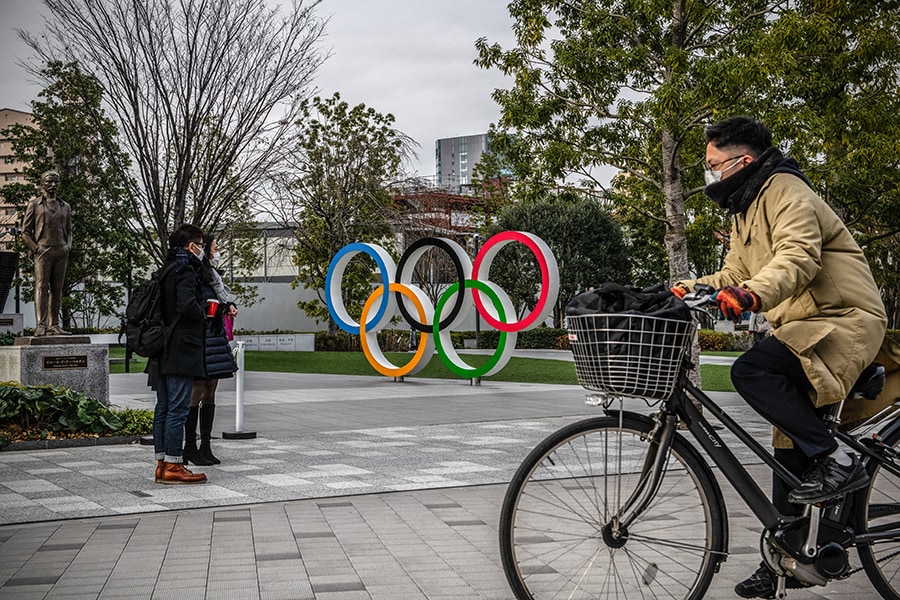
Hopes for Tokyo's Summer Olympics darken
The International Olympic Committee may be forced to cancel the Olympics for the first time since World War II.
 A man wearing a face mask cycles past the Olympic Rings on January 12, 2021 in Tokyo, Japan. Recent surveys by Kyodo News and Tokyo Broadcasting System found that over 80 percent of people in Japan who were questioned believe the Tokyo Olympics should be cancelled or postponed or that the Olympics will not take place. Tokyo remains in a second state of emergency amid a third wave of Covid-19 coronavirus that has seen infection rates climb to unprecedented levels.
A man wearing a face mask cycles past the Olympic Rings on January 12, 2021 in Tokyo, Japan. Recent surveys by Kyodo News and Tokyo Broadcasting System found that over 80 percent of people in Japan who were questioned believe the Tokyo Olympics should be cancelled or postponed or that the Olympics will not take place. Tokyo remains in a second state of emergency amid a third wave of Covid-19 coronavirus that has seen infection rates climb to unprecedented levels.
Image: Carl Court/ Getty Images
Plans for the postponed Tokyo Olympic Games are growing more uncertain by the day.
As coronavirus cases rise throughout Japan and in several large countries in Europe and the Americas, officials both in Tokyo and with the International Olympic Committee have begun to acknowledge that holding a safe games might not be possible, endangering dreams that the Olympics could serve as a global celebration of the end of the pandemic.
Instead, the IOC may be forced to cancel the Olympics for the first time since World War II. That would be a huge financial blow to both the Olympic organization and Japan, which has spent more than $12 billion building stadiums and improving its infrastructure to prepare for the games, and billions more to delay the event by a year.
For weeks, Japanese and Olympic officials have insisted that the games will go forward and that a further delay is not possible. Organizers have been trying to come up with plans to hold the games in a manner acceptable to the Japanese public, announcing an array of safety measures.
But polls show an increasing wariness. In a survey this month, the Japanese broadcaster NHK found that nearly 80% of respondents believed the games should be postponed or canceled. In October, less than half of respondents said that. The figure rose to 71% in December.
©2019 New York Times News Service




